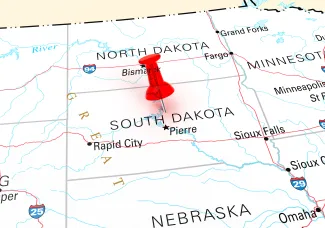
South Dakota refugee resettlement spiked in 2023
Click play to listen to this article.
(Greater Dakota News Service) South Dakota ranks fifth in the nation for its rate of refugee resettlements per capita and the rate increased dramatically in the last year, according to the Immigration Research Initiative.
More refugees, or people unable to return to their home countries due to persecution, are resettling in the U.S. following historic declines during the Trump administration.

According to the Lutheran Social Services Center for New Americans, South Dakota took in more than 200 refugees last year, up from about 50 the year before, representing a 320 percent jump. The national rate increased 135 percent in the same time frame.
Rebecca Kiesow-Knudsen, president and CEO of Lutheran Social Services of South Dakota, said the numbers are manageable.
"Still a pretty small number in our state and definitely a size that we feel we can responsibly integrate into the community," Kiesow-Knudsen acknowledged.
The numbers do not include arrivals through "Uniting for Ukraine," a separate federal program which resettled more than 250 individuals in the state last year. Lutheran Social Services of South Dakota is the sole resettlement agency in the state and works mostly in Sioux Falls where, Kiesow-Knudsen noted, the school districts are welcoming. But finding affordable housing is a challenge, one faced by most communities doing similar work.
Kiesow-Knudsen pointed out the Sioux Falls job market for New Americans is good and Lutheran Social Services offers a vocational English program to help them get jobs.
"If I'm going to go into the hospitality sector, as an example, what are the key English language words that I need to know and understand so that I can work with my employer successfully?" Kiesow-Knudsen suggested.
The Congressional Budget Office predicts immigration will be increasingly vital to the American workforce, as fertility rates decline. Net immigration is expected to account for all population growth starting in 2040, according to a demographic outlook the office released in January.

















